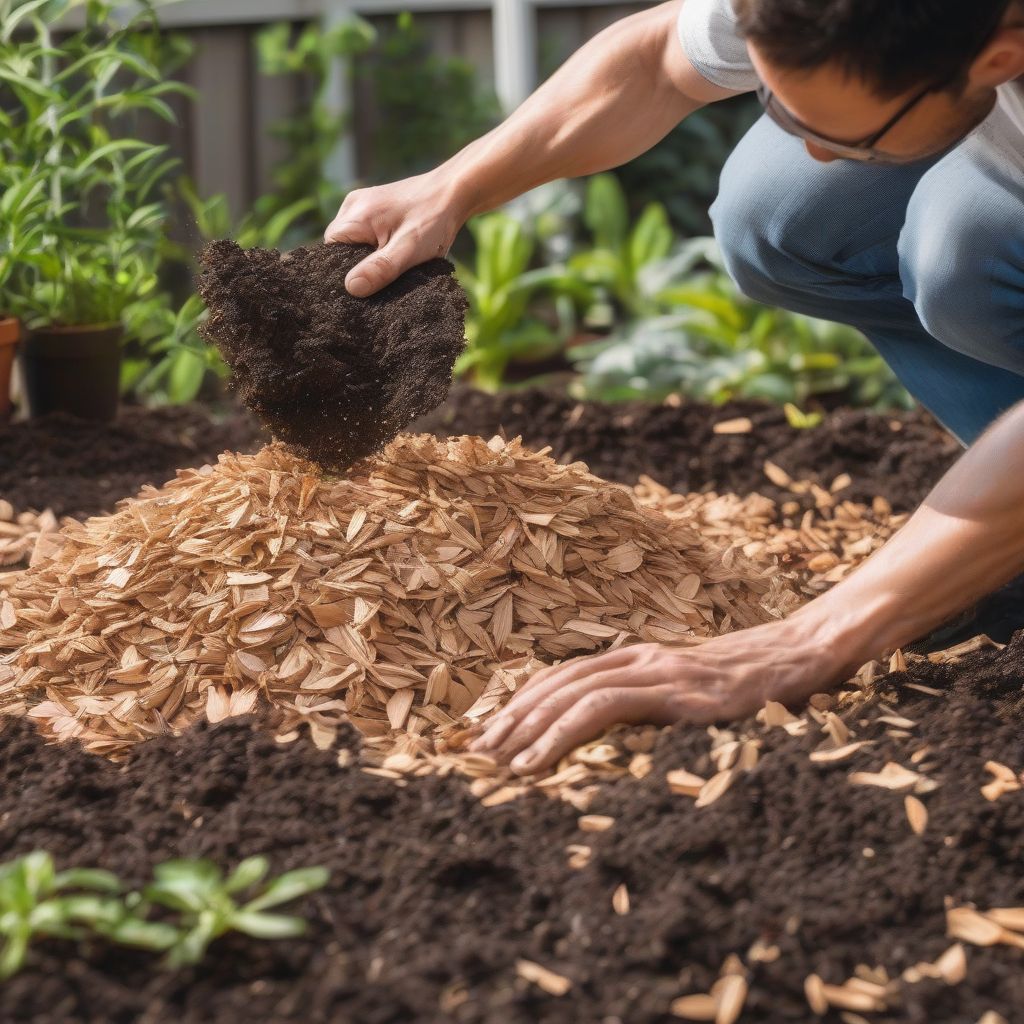Have you ever dreamt of plucking a juicy tomato straight from the vine or enjoying a crisp salad with greens you grew yourself? Sustainable gardening brings that dream to life while caring for our planet. It’s about creating a harmonious relationship with nature, minimizing waste, and maximizing resources. If you’re passionate about gardening and minimizing your environmental impact, this guide is for you. Let’s explore practical and effective tips to reduce waste and cultivate a thriving, sustainable garden.
Understanding Waste in Gardening
Before we dive into solutions, it’s important to recognize the types of waste often generated in gardens:
- Organic Waste: This includes kitchen scraps, grass clippings, fallen leaves, and pruned branches.
- Inorganic Waste: Think plastic plant pots, packaging from fertilizers, and synthetic gardening gloves.
- Water Waste: Overwatering is a common issue, leading to water runoff and wasted resources.
Practical Tips to Minimize Waste
Reducing waste in your sustainable garden is easier than you might think. Here are some practical tips:
1. Embrace the Power of Composting
Composting is like magic – it transforms kitchen scraps and yard waste into nutrient-rich “black gold” for your garden.
- Start Simple: You don’t need a fancy setup. A designated compost bin or even a pile in a corner will do.
- What to Compost: Add fruit and vegetable scraps, coffee grounds, eggshells, leaves, grass clippings (in moderation), and even shredded paper.
- Maintain the Balance: Mix “brown” materials (like dry leaves and shredded paper) with “green” materials (like kitchen scraps) for optimal decomposition.
Expert Tip: “A well-maintained compost pile should have a pleasant, earthy smell,” says Maria Smith, Master Gardener and author of “Composting for Beginners”.
2. Water Wisely and Conserve
Water is precious, and conserving it in the garden is essential:
- Water Deeply, Less Often: Deep watering encourages strong root development. Water thoroughly when the soil is dry to the touch, rather than frequent, shallow watering.
- Timing is Key: Water early in the morning or late in the evening to minimize evaporation.
- Mulch, Mulch, Mulch: Organic mulches like wood chips, straw, or shredded leaves help retain moisture in the soil, reducing the need for frequent watering.
 Mulching Garden with Wood Chips
Mulching Garden with Wood Chips
3. Say No to Pesticides and Herbicides
Protect beneficial insects, pollinators, and the health of your soil by avoiding synthetic pesticides and herbicides.
- Natural Pest Control: Attract beneficial insects like ladybugs and lacewings that feed on common garden pests. You can also make your own insecticidal soap sprays using natural ingredients.
- Weed Control the Eco-Friendly Way: Hand-pulling weeds, using mulch to suppress their growth, and boiling water on persistent weeds are effective and environmentally friendly weed control methods.
4. Reduce, Reuse, Recycle – The Gardening Edition
Get creative and give new life to everyday items:
- Seed Starting Pots: Use empty egg cartons, yogurt cups, or toilet paper rolls to start seeds indoors.
- DIY Trellises and Supports: Repurpose old ladders, bamboo stakes, or even branches for sturdy plant supports.
- Rainwater Harvesting: Collect rainwater in barrels or buckets to water your garden and reduce reliance on municipal water sources.
5. Plan Before You Plant
Careful planning minimizes overplanting and potential food waste:
- Companion Planting: Group plants that benefit each other. For example, basil repels pests that bother tomatoes.
- Succession Planting: Plant crops in stages to enjoy a continuous harvest throughout the growing season. This prevents having a surplus of produce all at once.
- Preserve Your Harvest: Learn to can, pickle, freeze, or dry excess fruits and vegetables to savor the flavors of your garden year-round.
6. Feed Your Soil, Not the Landfill
Healthy soil is the foundation of a productive garden. Instead of discarding yard waste and kitchen scraps, turn them into valuable soil amendments:
- Grasscycling: Leave grass clippings on the lawn after mowing. They decompose quickly, adding nutrients back to the soil.
- Leaf Mold: Collect fallen leaves and store them in a designated area to create leaf mold, a fantastic soil amendment that improves soil structure and drainage.
[amazon bestseller=”Composting for Beginners”]
Conclusion
Creating a sustainable garden is a rewarding journey filled with delicious discoveries and a deeper connection to nature. By embracing these waste-reduction tips, you’ll minimize your environmental impact, save money, and cultivate a thriving garden that nourishes both body and soul. Remember, every small step you take toward sustainability makes a difference. Start small, experiment, and enjoy the process of growing your own food in a way that benefits the planet.
Let us know in the comments about your favorite waste-reducing tips for sustainable gardening! Share your successes and inspire others to join the journey towards a greener world, one garden at a time.
